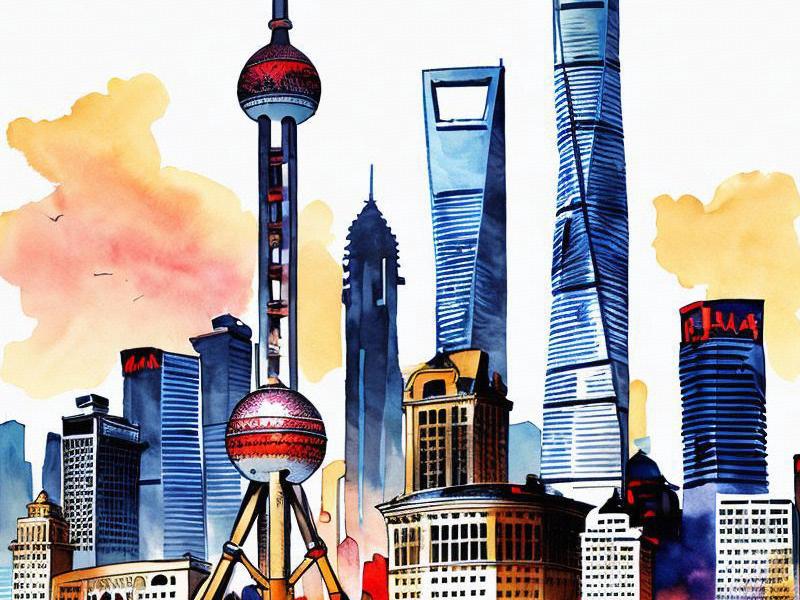Shanghai's Renaissance: A Journey Through the City's Modern Transformations and Cultural Revival
⏱ 2025-04-30 12:24 🔖 上海龙凤419
📢0℃

Shanghai, a city that has long been a symbol of China's rapid economic rise, is currently undergoing a remarkable renaissance. This vibrant metropolis, with its skyline punctuated by the iconic Oriental Pearl Tower and the futuristic Shanghai Tower, is not just a hub for commerce and finance but also a city where history and modernity coexist in harmony.
The transformation of Shanghai can be traced back to the late 20th century when the Chinese government initiated economic reforms that opened the city to foreign investment and global markets. This period marked the beginning of Shanghai's metamorphosis from a relatively sleepy industrial town into a bustling international financial center. Today, Shanghai is home to the world's busiest container port, a leading stock exchange, and a skyline that is constantly being reshaped by new skyscrapers.
However, Shanghai's story is not just one of economic growth. The city has also made concerted efforts to preserve its rich cultural heritage. The Bund, a historic waterfront area, stands as a testament to the city's colonial past, with its array of Art Deco buildings now complemented by modern developments. The nearby Yu Garden, a classical Chinese garden, offers a serene escape from the urban hustle and bustle, showcasing the city's deep-rooted traditions.
One of the most striking aspects of Shanghai's renaissance is its commitment to sustainable urban development. The city has invested heavily in green technologies and infrastructure, aiming to become a model for environmentally friendly urban living. The Maglev train, which connects Shanghai's Pudong International Airport to the city center, is a prime example of this commitment, offering a fast, efficient, and low-emission mode of transportation.
上海私人品茶 Culturally, Shanghai is a melting pot of influences. The city's art scene is thriving, with galleries and museums showcasing both traditional Chinese art and contemporary works from around the world. The Shanghai International Film Festival, one of Asia's most prestigious film festivals, attracts filmmakers and audiences from across the globe, further cementing the city's status as a cultural hub.
The city's culinary scene is another area where Shanghai's renaissance is evident. Traditional Shanghainese cuisine, known for its delicate flavors and intricate preparation, is enjoying a resurgence. At the same time, the city's restaurants offer a diverse array of international cuisines, reflecting its cosmopolitan character.
Education is another area where Shanghai has made significant strides. The city is home to some of China's top universities, including Fudan University and Tongji University, which attract students from around the world. These institutions are at the forefront of research and innovation, contributing to Shanghai's reputation as a global knowledge hub.
Shanghai's renaissance is not without its challenges. The rapid pace of urbanization has led to issues such as housing shortages and traffic congestion. However, the city government has implemented various measures to address these challenges, including the development of new housing projects and the expansion of public transportation networks.
上海品茶论坛
One of the most ambitious projects in this regard is the construction of the Hongqiao Transportation Hub, which aims to integrate rail, air, and bus services in a single facility. This project is expected to significantly reduce travel times and improve connectivity within the city and beyond.
Shanghai's efforts to balance modernization with cultural preservation are also evident in its approach to urban planning. The city has designated several historic districts as conservation areas, ensuring that their unique character is maintained while allowing for sustainable development. These districts, such as the French Concession and the Old City, are popular destinations for both locals and tourists, offering a glimpse into the city's rich history.
The city's cultural revival is further enhanced by its vibrant arts and entertainment scene. The Shanghai Museum, one of the largest and most prestigious museums in China, houses an extensive collection of Chinese art, including ancient ceramics, calligraphy, and paintings. The city's theaters and concert halls host a wide range of performances, from traditional Chinese opera to contemporary music and dance.
上海品茶网 Shanghai's renaissance is also reflected in its role on the global stage. The city has become a key player in international diplomacy and trade, hosting numerous high-profile events and summits. Its strategic location and well-developed infrastructure make it an ideal hub for global businesses and organizations.
The city's future prospects are bright, with ongoing investments in technology and innovation. Shanghai is at the forefront of China's digital transformation, with initiatives such as the Shanghai Free-Trade Zone and the establishment of the China (Shanghai) Pilot Free-Trade Zone. These efforts aim to crteeaa more open and competitive business environment, attracting foreign investment and fostering innovation.
In conclusion, Shanghai's renaissance is a story of remarkable transformation and cultural revival. The city has successfully balanced modernization with the preservation of its rich heritage, emerging as a global economic powerhouse and a cultural hub. As Shanghai continues to evolve, it remains a beacon of China's progress and a testament to the potential of urban development in the 21st century.
Shanghai's Quantum-Financial Nexus: Where Bund Architecture Fuels Hyperspace EconomicsShanghai Life: From Street Art to Skyline ArchitectureShanghai's Nightlife Renaissance: How Entertainment Clubs Drive the City's After-Dark EconomyShanghai and Beyond: The Economic Powerhouse Reshaping the Yangtze Delta【城市更新观察】从工业锈带到文化秀带:苏州河沿岸的世纪转身Shanghai After Dark: How the City's Entertainment Clubs Are Redefining Global Nightlife Standards【越海传承】从三江口到黄浦江:沪甬双城的千年文化基因图谱Shanghai’s Velvet Renaissance: Where Imperial Elegance Meets AI-Driven NightlifeShanghai Beauties: The Shining Icons of the CityKeywords: Shanghai, Beauties, City Icon, Fashion, Culture, GlamourDescription:This article delves intoThe Shanghai Financial Revolution: How China's Economic Powerhouse is Redefining Global Finance

